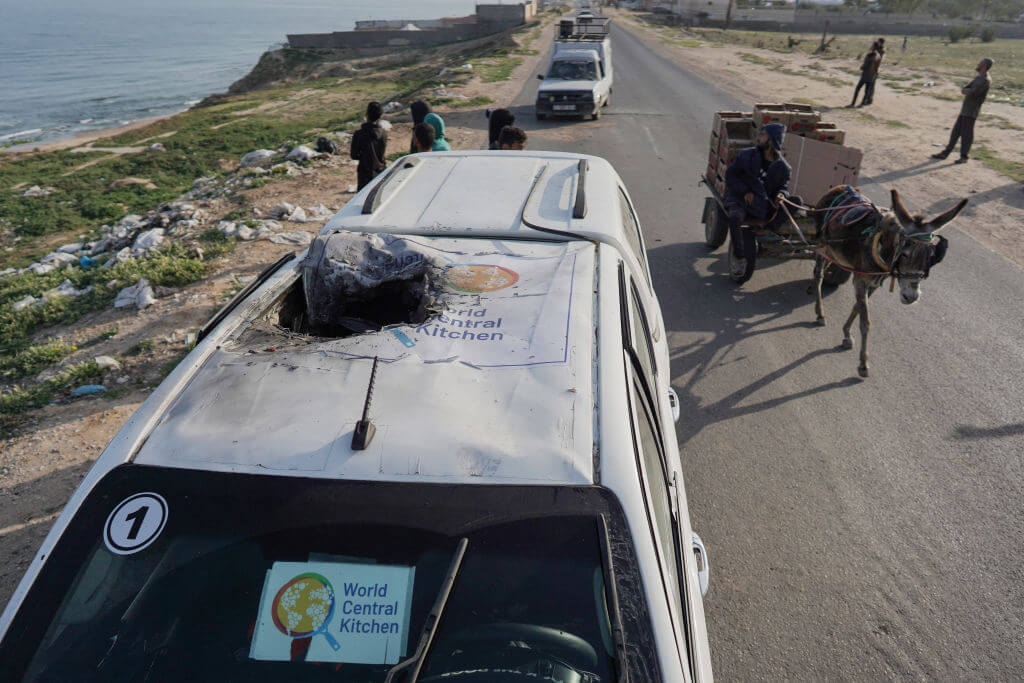MLA Panel Is High On Emotion, Low On Facts

?It Impacts People?: Professors and scholars are debating the boycott of Israel at the MLA. Image by Thinkstock
‘It Impacts People’: Professors and scholars are debating the boycott of Israel at the MLA. // Thinkstock
Vote Your Conscience!
Well, that was certainly the message at session 48 of the MLA, billed as a roundtable discussion of “Academic Boycotts: A Conversation about Israel and Palestine.”
“There is no us and them, only us and us,” claimed the panel organizer and moderator Samer M. Ali, while Omar Bargouti — an independent scholar — appealed to “people of conscience to stop ‘business as usual’” citing scholars’ “profound moral obligation.” Barbara Harlow of the University of Texas at Austin called on “scholars with integrity,” while David Lloyd at the University of California claimed that there was a “moral principle” at stake, which he reiterated in the question period by claiming that scholars have “an ethical responsibility to… colleagues in Palestine.”
So it is clear, if you aren’t supporting the boycott you must be immoral, without integrity, and lacking good conscience. The arguments for and against the boycott are significantly less important to the panelists, and certainly few real facts surfaced in the course of their presentations. Instead, they have decided that an emotional appeal to the scholars of the world is enough to win their case.
When the panelists did turn to their own particular ways of legitimizing the boycott movement, they seemed oblivious to the internal contradictions of their arguments. Lloyd pushed for going as far as possible: “Ideally we could cut off all relations with academic institutions” — because as several panelists reiterated at various points, institutions are not individuals. Except that Bargouti did point out that “we can’t expect Palestinians [in Israel] to boycott their institutions, how can they” and that “nobody in the boycott movement denied that individuals would be affected,” adding “it always impacts people.”
Asked in the question period whether they were delegitimizing the study of Israel by international scholars who would be unable to participate in conferences hosted by Israeli universities, research in archives and libraries in Israel, or purchase books published by Israeli university presses, Harlow argued that now is the time to study Israel, while the other panelists suggested that it was a matter of conscience to choose what you worked on.
Richard Ohmann, a retired Wesleyan professor, stated that it had been wrong of University presidents to call on universities to refuse travel funds to scholars wishing to travel to the ASA, which recently endorsed a boycott of Israeli academia. He failed to note that he was calling for scholars in Israel to travel without funds from their home institutions, to academic conferences overseas, in response to institutional boycotts. Something Bargouti claimed was not against academic freedom in the Israeli context, since infringing “on their privileges” and creating a situation where Israeli scholars will “have lesser resources” is legitimate. It seems it is only in the U.S. context that delimiting scholars’ travel funds is a curtailing of academic freedom.
I should mention, though, that in the final moments of the event Lloyd argued that this legitimate and peaceful “civil society movement doesn’t represent the Palestinian Authority or Hamas.” So perhaps truth was spoken at this panel after all.
The Forward is free to read, but it isn’t free to produce

I hope you appreciated this article. Before you go, I’d like to ask you to please support the Forward.
Now more than ever, American Jews need independent news they can trust, with reporting driven by truth, not ideology. We serve you, not any ideological agenda.
At a time when other newsrooms are closing or cutting back, the Forward has removed its paywall and invested additional resources to report on the ground from Israel and around the U.S. on the impact of the war, rising antisemitism and polarized discourse.
This is a great time to support independent Jewish journalism you rely on. Make a gift today!
— Rachel Fishman Feddersen, Publisher and CEO
Support our mission to tell the Jewish story fully and fairly.
Most Popular
- 1

Fast Forward Ye debuts ‘Heil Hitler’ music video that includes a sample of a Hitler speech
- 2

Opinion It looks like Israel totally underestimated Trump
- 3

Culture Cardinals are Catholic, not Jewish — so why do they all wear yarmulkes?
- 4

Fast Forward Student suspended for ‘F— the Jews’ video defends himself on antisemitic podcast
In Case You Missed It
-

Fast Forward In first Sunday address, Pope Leo XIV calls for ceasefire in Gaza, release of hostages
-

Fast Forward Huckabee denies rift between Netanyahu and Trump as US actions in Middle East appear to leave out Israel
-

Fast Forward Federal security grants to synagogues are resuming after two-month Trump freeze
-

Fast Forward NY state budget weakens yeshiva oversight in blow to secular education advocates
-
Shop the Forward Store
100% of profits support our journalism
Republish This Story
Please read before republishing
We’re happy to make this story available to republish for free, unless it originated with JTA, Haaretz or another publication (as indicated on the article) and as long as you follow our guidelines.
You must comply with the following:
- Credit the Forward
- Retain our pixel
- Preserve our canonical link in Google search
- Add a noindex tag in Google search
See our full guidelines for more information, and this guide for detail about canonical URLs.
To republish, copy the HTML by clicking on the yellow button to the right; it includes our tracking pixel, all paragraph styles and hyperlinks, the author byline and credit to the Forward. It does not include images; to avoid copyright violations, you must add them manually, following our guidelines. Please email us at [email protected], subject line “republish,” with any questions or to let us know what stories you’re picking up.
















